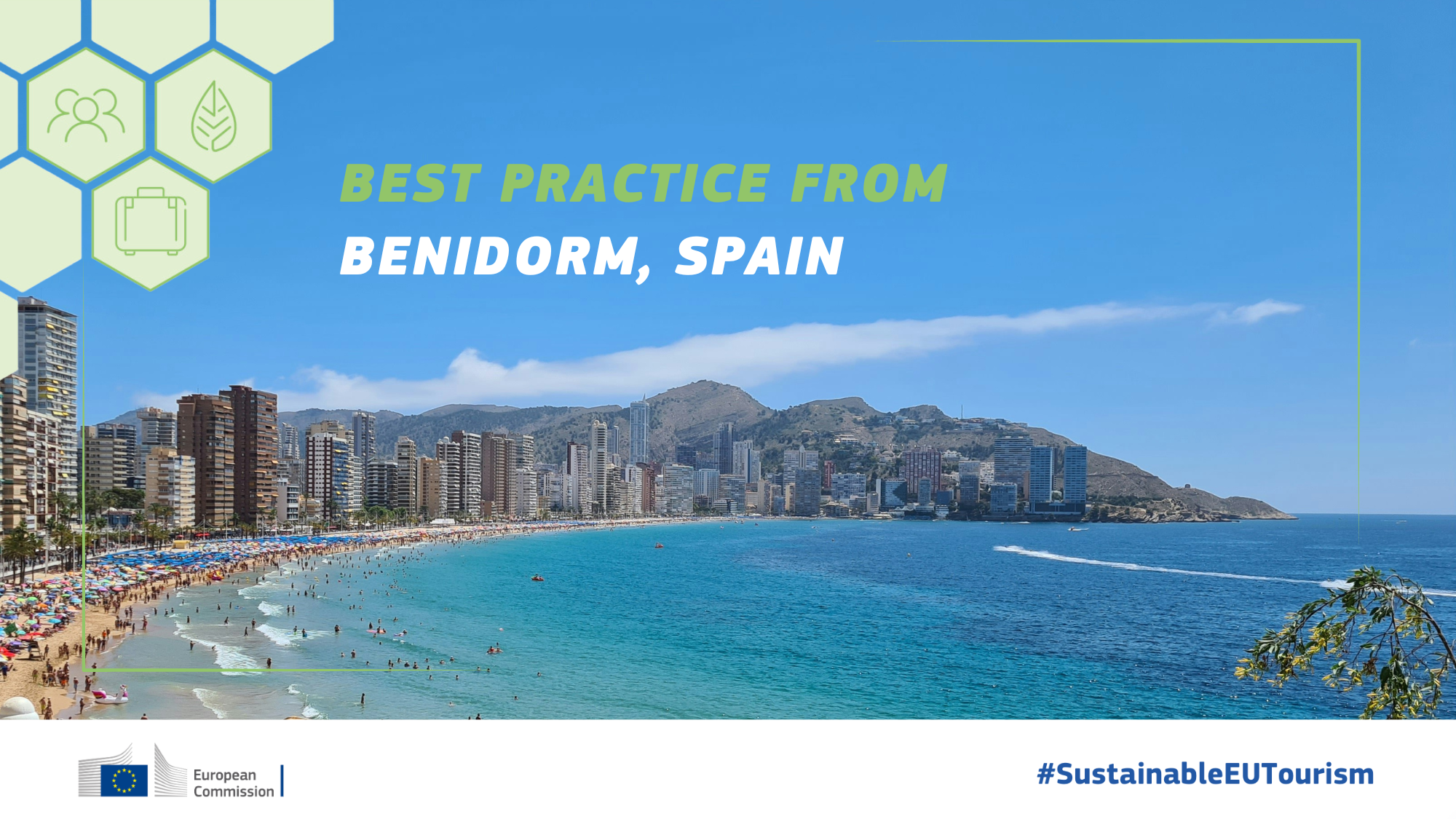Best practices
20 June 2025
Sustainable EU Tourism project - best practice: Benidorm
Best practices
20 June 2025
Coastal, maritime and inland water tourism
Cultural tourism
Gastronomy tourism
+9 more
Login / create an account to be able to react

Benidorm, Spain, a leading Mediterranean tourist destination, has implemented a comprehensive and innovative water management strategy to address chronic water scarcity. Through infrastructural upgrades, digital monitoring systems, public awareness campaigns, and stakeholder collaboration, the city has achieved remarkable water efficiency while supporting a thriving tourism sector. These efforts have ensured the sustainable use of resources, enhanced resilience to climate change, and supported continued economic growth.
Topics
Spain
Destination Management & Marketing Organisations
-
Specific types of tourism
-
-
Coastal, maritime and inland water tourism
-
Cultural tourism
-
Gastronomy tourism
-
Health and medical tourism
-
Sports tourism
-
-
Transition Pathway Strategic Areas
-
-
Best practices, peer learning and networking
-
Circularity of tourism services
-
Digitalisation of tourism SMEs and destinations
-
Governance of tourism destinations
-
Well-being of residents
-
-
Business activities
-
-
Activities of associations and other organisations supporting tourism
-
Other
-
Share
Benidorm, Spain, has been recognised as a best practice by the Sustainable EU Tourism project for its pioneering approach to sustainable water management in a high-demand coastal tourism destination. Originally developed as a holiday resort in the 1950s, Benidorm now hosts over 15 million overnight stays annually, with tourism contributing significantly to the local economy.
Faced with severe water shortages in the 1970s, the city launched a long-term strategy integrating infrastructure, innovation, and public engagement. Key initiatives include a dual sewage system separating rainwater and wastewater, AI-powered bioreactor aeration to reduce energy use, and the DINAPSIS centre for digital innovation in water management. Real-time monitoring systems and 1,600 smart meters track water usage and system health, enabling predictive maintenance and efficient resource allocation.
Public awareness campaigns, such as “Lo del agua en serio”, promote responsible water use, while beach infrastructure has been adapted to reduce consumption. In 2020, Benidorm became the first municipality of its size to launch a Climate Change Adaptation Plan.
These efforts have led to a 95% water efficiency rate (far above the national average) and a 36% reuse rate of treated water. The city can now withstand peak season demand surges of over 700%, ensuring both resident and tourist needs are met sustainably.
Benidorm’s experience demonstrates how a destination can successfully balance tourism growth with environmental stewardship. It highlights the importance of long-term planning, stakeholder collaboration, and technological innovation in addressing climate-related challenges. This best practice showcases how sustainability can be embedded into tourism infrastructure, ensuring resilience, efficiency, and quality of life for both residents and visitors.
For further details on the key challenges the destination has faced, and the solutions implemented to address them, please refer to the attached document.
#Destination management #Sustainable tourism #Community engagement #Stakeholder engagement #Sustainable consumption #Resource efficiency #Climate action #Innovation in tourism #Responsible travel
Documents
Comments (0)
See also
-
16
Sustainable EU Tourism - Key challenges and best practices
- Categories
- Coastal, maritime and inland water tourism Cultural tourism Ecotourism +64 more
-
14
Sign-up for the Sustainable EU Tourism Twinning Workshop
- Categories
- Coastal, maritime and inland water tourism Cultural tourism Ecotourism +64 more
-
76
Last Chance to Register for the 1st EU Tourism Platform Onboarding Workshop!
- Categories
- Coastal, maritime and inland water tourism Cultural tourism Ecotourism +64 more


